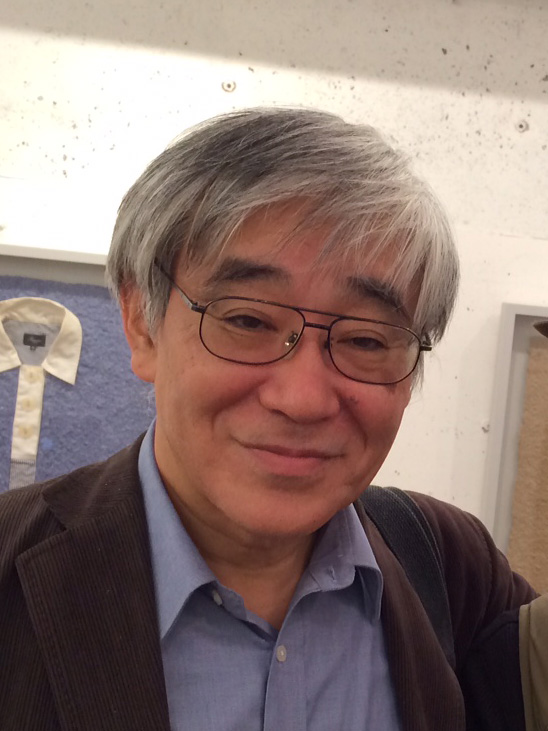
プロフィール
中村滋延(NAKAMURA, Shigenobu)
作曲家・九州大学名誉教授。1950年大阪生まれ、1977年愛知県立芸術大学大学院修了。在学中の1974〜76年にドイツ政府給費留学生(DAAD)として国立ミュンヘン音楽大学で学ぶ。日本音楽コンクール作曲部門(1971,73年),国際ガウデアムス作曲コンクール(76,77年)、AVRO奨励賞(オランダ放送局連盟賞77年)、日本交響楽振興財団作曲賞(78年)、日本音楽集団作曲賞(78年)、Music Today作曲コンクール(83年)、国立劇場舞台芸術作品賞(98年)、ICMC国際コンピュータ音楽会議作品上演(91,95,96,97,2001,03年)、国際メディアアート賞(95,96年)など入選入賞多数。交響曲5曲を含むクラシック系列の現代音楽を100曲以上作曲。加えて音楽系メディアアート及び映像音響詩という表現領域を創成。1997〜1998年ドイツZKM(メディアアートセンター)客員芸術家。九州大学大学院芸術工学院教授(2001-2016)としてメディアアートや映像アートの研究・制作・教育活動に従事。音楽や映画・映像アートに関する著述・論文・評論等の執筆も多い。2010年福岡市文化賞。現在大阪府高槻市在住。
オフィシャルWEBサイト http://nkmr1950.sakura.ne.jp/wp/
Shigenobu Nakamura is a composer and currently a professor emeritus at National Kyushu University. Nakamura was born in Osaka in 1950. He studied at graduate school of Aichi Prefectural University of Art and Music with Kan Ishii and Naohiro Nakata. After twice being awarded prizes in the composition division of the Musical Competition of Japan, he studied on a DAAD scholarship between 1974 and 1976 at the National Conservatory of Music in Munich with W. Killmayer as his tutor for musical composition and D. Acker for musical analysis. Over the years, he has won numerous awards, including the International Gaudeamus Composition Competition in 1975 and 1976, the AVRO award in 1976, the honorable mention of the composition prize awarded by the JAPAN Symphony Foundation in 1978, the composition prize awarded by Nihon Ongaku Shudan (the Japanese Musical Group) in 1978, the Music Today Composition Award in 1983, the National Theater Art Prize in 1998, and others. He has created around 150 compositions, including five symphonies. His compositions range over the whole field of contemporary music.
He has been a visiting artist at ZKM (Germany) and a professor of the Faculty of Design at National Kyushu University.
Official website http://nkmr1950.sakura.ne.jp/wp/
楽曲解説
ヴァイオリンとピアノのための
《ドンキホーテ哀歌「喜劇ではなく、悲劇だ!」》
2020年6月から7月にかけて作曲。ヴァイオリンとピアノの二重奏曲であり、これがこの作品の原典版である。原典版と断っているのは同名タイトルで2020年12月の初演した作品があるからだが、こちらの方は編成も趣も異なっている。
この作品はスペインのミゲル・セルバンテスが17世紀初頭に書いた長編小説「ドンキホーテ」に想を得た音楽。各楽章のタイトルは以下の通り。
第1曲 騎士物語を読みふける
第2曲 風車への突撃
第3曲 わが愛しのドゥルシネーア
第4曲 ライオンに無視される
第5曲 思わぬ敗北
第6曲 正気に戻る
ドンキホーテは50歳を過ぎた老人。遍歴の旅をするには明らかに歳を取りすぎている。満足いく人生ではなかった焦りが彼を遍歴の旅に駆り立てる。デタラメで無謀な戦いもじつは現実逃避の思いがなせる技。事件や戦いは表面的にはお笑いだが、内実は悲劇そのもの。最後はさびしく哀れに、しかし静かにあの世に旅立つ。その旅立ちの様子にギリギリまで頑張って生きた男の哀愁が漂っている。けっしてドンキホーテは不幸ではなかった、と読者を慰めてくれる。
Not a comedy, but a tragedy
Lament on Don Quixote for violin and piano
Shigenobu Nakamura
Not a comedy, but a tragedy, Lament on Don Quixote for violin and piano was composed from June to July 2020. This piece is the original version of the piece Not a comedy, but a tragedy. I call it the original version because another work with the same title premiered in December 2020, but this one has a different instrumentation and flavor.
This work is inspired by the novel “Don Quixote” written in the early 17th century by Miguel Cervantes from Spain. The title of each movement is as follows.
1st movement: Reading the knight’s tale
2nd movement: Assault on the windmill
3rd movement: My beloved Dulcinea
4th movement: Ignored by the lion
5th movement: Unexpected defeat
6th movement: Returning to sanity
Don Quixote is an old man over 50. He is clearly too old to make an itinerant journey. His impatience for not having a satisfying life invokes in him an itinerant journey. Reckless fighting is his way of escaping from the real world. Incidents and battles are superficially funny, but in reality, they are tragic. At the end, sadly and sorry, but quietly, he departs to the other world.
The path of his departure conveys the melancholy of a man who lived his life to the limit. It comforts the reader that Don Quixote was never unhappy.
